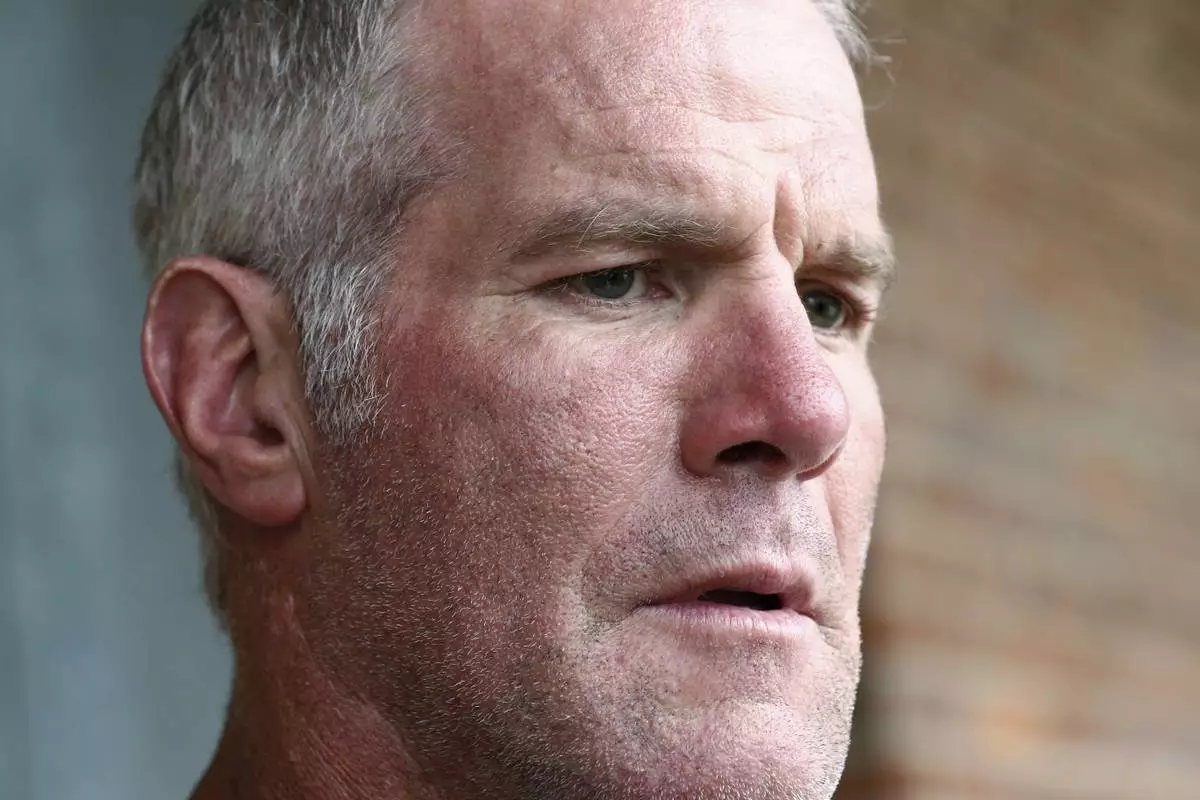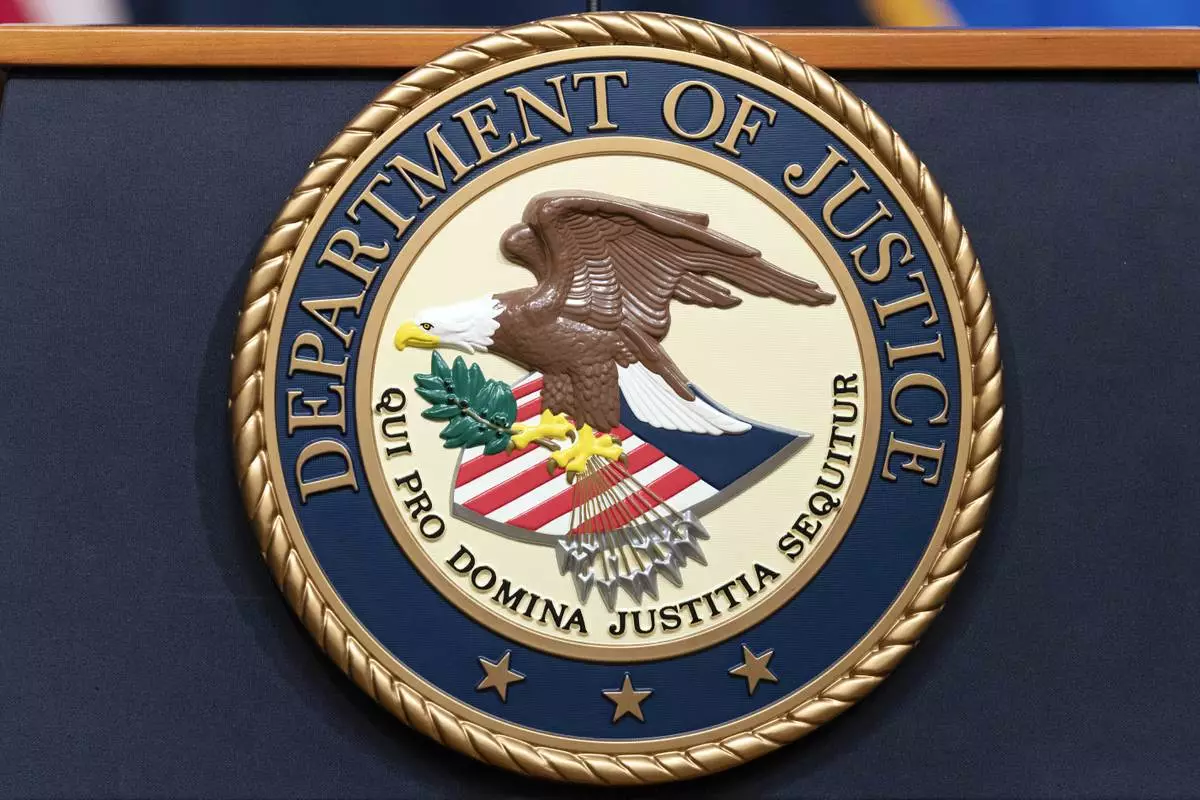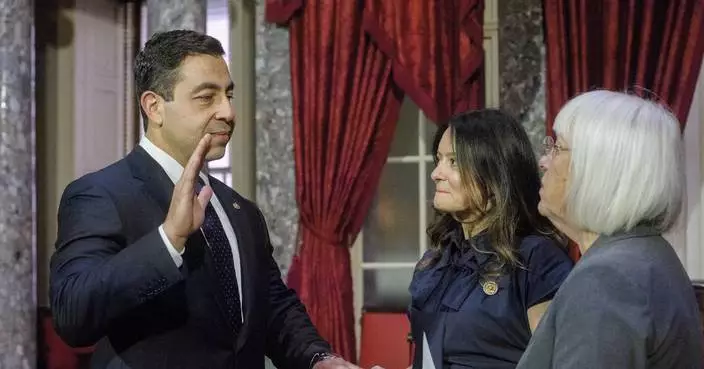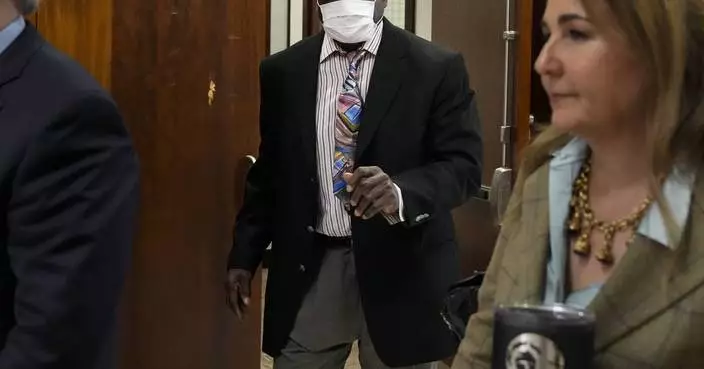JACKSON, Miss. (AP) — Retired NFL quarterback Brett Favre says a Mississippi judge improperly blocked his lead attorney from representing him in a state civil lawsuit that seeks to recover misspent welfare money.
Using another of his attorneys, Favre filed an appeal Thursday asking the Mississippi Supreme Court to overturn the ruling that Hinds County Circuit Judge Faye Peterson issued July 11.
The Mississippi Department of Human Services filed a civil lawsuit in 2022 against Favre and more than three dozen other people, groups and companies. The state auditor has said welfare money that was supposed to help some of the poorest residents in the U.S. was spent instead on projects pushed by wealthy and well-connected people, including a university volleyball arena backed by Favre.
Peterson wrote in her order that one of Favre’s New York-based attorneys, Daniel Koevary, had violated rules for Mississippi civil court procedures by repeatedly demanding hearings “for matters unrelated to and not within the jurisdiction of this Court to resolve.” Peterson also wrote that she deemed the behavior “an attempt to manufacture discord.”
One of Favre's Mississippi-based attorneys, Michael J. Bentley, wrote in the appeal Thursday that Peterson's order causes irreparable harm.
“Neither Koevary nor other non-local attorneys did anything wrong in representing Favre, let alone anything warranting sidelining them and thereby impinging on Favre's right and prejudicing Favre by depriving him of the full services of the attorneys with the greatest institutional knowledge of the matter,” Bentley wrote.
Mississippi Auditor Shad White said in 2020 that Favre, a Pro Football Hall of Fame member who lives in Mississippi, had improperly received $1.1 million in speaking fees from a nonprofit organization that spent welfare money with approval from the Mississippi Department of Human Services. The welfare money was to go toward a volleyball arena at the University of Southern Mississippi. Favre agreed to lead fundraising efforts for the facility at his alma mater, where his daughter started playing on the volleyball team in 2017.
Favre repaid $500,000 to the state in May 2020 and $600,000 in October 2021, White said in a court filing in February that Favre still owes $729,790 because interest caused growth in the original amount he owed.
Favre is not facing any criminal charges. Former Mississippi Department of Human Services director John Davis and others have pleaded guilty to misspending money from the Temporary Assistance for Needy Families program.
White has said more than $77 million of welfare money was misspent from 2016 to 2019, including $160,000 for drug rehab for a former pro wrestler and thousands of dollars for airfare and hotel stays for Davis, who led the Department of Human Services during those years.

FILE - Retired NFL quarterback Brett Favre speaks to the media in Jackson, Miss., Oct. 17, 2018. (AP Photo/Rogelio V. Solis, File)
WASHINGTON (AP) — Two people who prosecutors say were motivated by white supremacist ideology have been arrested on charges that they used the social media messaging app Telegram to encourage hate crimes and acts of violence against minorities, government officials and critical infrastructure in the United States, the Justice Department said Monday.
The defendants, identified as Dallas Erin Humber and Matthew Robert Allison, face 15 federal counts in the Eastern District of California, including charges that accuse them of soliciting hate crimes and the murder of federal officials, distributing bombmaking instructions and conspiring to provide material support to terrorists.
Humber, 34, of Elk Grove, California, and Allison, 37, of Boise, Idaho were arrested Friday. Humber pleaded not guilty in a Sacramento courtroom Monday to the charges. Her attorney Noa Oren declined to comment on the case Monday afternoon after the arraignment.
It was not immediately clear if Allison had an attorney who could speak on his behalf.
The indictment accuses the two of leading Terrorgram, a network of channels and group chats on Telegram, and of soliciting followers to attack perceived enemies of white people, including government buildings and energy facilities and “high-value” targets such as politicians.
“Today’s action makes clear that the department will hold perpetrators accountable, including those who hide behind computer screens, in seeking to carry out bias-motivated violence,” Assistant Attorney General Kristen Clarke, the Justice Department's top civil rights official, said at a news conference.
Their exhortations to commit violence included statements such as “Take Action Now” and “Do your part,” and users who carried out acts to further white supremacism were told they could become known as “Saints,” prosecutors said.
Justice Department officials say the pair used the app to transmit bomb-making instructions and to distribute a list of potential targets for assassination — including a federal judge, a senator and a former U.S. attorney — and to celebrate acts or plots from active Terrorgram users.
Those include the stabbing last month of five people outside a mosque in Turkey and the July arrest of an 18-year-old accused of planning to attack an electrical substation to advance white supremacist views. In the Turkey attack, for instance, prosecutors say the culprit on the morning of the stabbing posted in a group chat: “Come see how much humans I can cleanse.”
A 24-minute documentary that the two had produced, “White Terror," documented and praised some 105 acts of white supremacist violence between 1968 and 2021, according to the indictment.
“The risk and danger they present is extremely serious," said Assistant Attorney General Matthew Olsen, the Justice Department’s top national security official. He added: “Their reach is as far as the internet because of the platform they’ve created.”
Telegram is a messaging app that allows for one-on-one conversations, group chats and large “channels” that let people broadcast messages to subscribers. Though broadly used as a messaging tool around the world, Telegram has also drawn scrutiny, including a finding from French investigators that the app has been used by Islamic extremists and drug traffickers.
Telegram's founder and CEO, Pavel Durov, was detained by French authorities last month on charges of allowing the platform’s use for criminal activity. Durov responded to the charges with a post last week saying he shouldn’t have been targeted personally and by promising to step up efforts to fight criminality on the app.
He wrote that while Telegram is not “some sort of anarchic paradise,” surging numbers of users have “caused growing pains that made it easier for criminals to abuse our platform.”
Associated Press reporter Trân Nguyễn contributed from Sacramento, California.

FILE - The Department of Justice seals is seen during a news conference at the DOJ office in Washington, May 16, 2023. (AP Photo/Jose Luis Magana, File)











